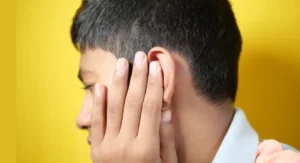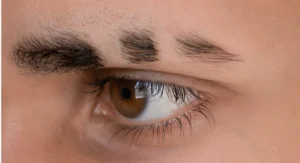Neck pain and headaches are more connected than you might think. Many people experience these issues separately, but they often come hand in hand. Understanding the link between neck pain and headaches can help you manage and prevent these problems more effectively. In this post, we’ll explore the anatomy of neck pain and headaches.
We’ll also explore the types of headaches linked to neck pain, common causes, diagnosis, treatment options, and prevention tips. By the end, you’ll understand how neck pain causes headaches and what you can do about it.
Contents
- 1 Anatomy Of Neck Pain And Headaches
- 2 Types Of Headaches Linked To Neck Pain
- 3 Common Causes Of Neck Pain Leading To Headaches
- 4 Diagnosing Neck Pain-Related Headaches
- 5 Headaches And Neck Pain Treatment Options
- 6 Taking Preventative Measures
- 7 Real-Life Stories Or Case Studies
- 8 Conclusion
- 9 Frequently Asked Questions
Anatomy Of Neck Pain And Headaches
The neck, or cervical spine, is a complex structure made up of vertebrae, muscles, nerves, and other tissues. This intricate system supports your head and allows movement. However, because it bears such a burden, it’s susceptible to pain and discomfort.
When something happens wrong in the neck, it can easily lead to headaches. The muscles and nerves in the neck are closely connected to those in the head. When neck muscles become tense or strained, they can trigger pain signals that radiate to the head, resulting in headaches.
Dr. Jane Doe, a neurologist, explains,
“Neck pain isn’t just a discomfort; it can be a significant source of headaches that many don’t realize.”
Types Of Headaches Linked To Neck Pain
Cervicogenic Headaches
Cervicogenic headaches are directly caused by neck issues. Symptoms include pain on one side of the head or face, neck stiffness, and reduced head mobility. These headaches often stem from cervical spine problems, such as herniated discs or arthritis.
Tension-Type Headaches
Tension-type headaches are the most common headache type and are often linked to neck issues. These headaches feel like a tight band around the forehead and can be caused by neck tension and stress levels. Poor posture and prolonged sitting can exacerbate headaches.
Other Types Of Headaches
Migraine headaches, occipital neuralgia, and temporomandibular joint (TMJ) headaches can also be confused with neck-related headaches. While they have different root causes, neck pain can worsen these conditions and make them more difficult to manage.
Migraine headaches, occipital neuralgia, and temporomandibular joint (TMJ) headaches can also be confused with neck-related headaches. While they have different root causes, neck pain can worsen these conditions and make them more difficult to manage.
Common Causes Of Neck Pain Leading To Headaches

Physical Strain And Posture Issues
Poor posture is a leading cause of neck pain. Sitting at a desk all day, looking down at a smartphone, or sleeping in an awkward position can strain the neck muscles. Over time, this strain results in chronic neck pain and headaches.
Trauma Or Injury
Injuries such as whiplash from a car accident or sports-related impacts can cause neck pain that leads to headaches. These injuries can damage the cervical spine, muscles, and nerves, triggering headaches.
Medical Conditions
Conditions like arthritis and degenerative disc disease can cause chronic neck pain and headaches. Arthritis in the neck leads to inflammation and stiffness, while degenerative disc disease causes the discs between the vertebrae to deteriorate, resulting in pain.
Dr. Michael Smith, an orthopedic surgeon, states,
“Understanding the intricate connection between the neck and headaches is crucial for proper diagnosis and effective treatment.”
Diagnosing Neck Pain-Related Headaches
Steps In A Medical Evaluation
Diagnosing neck pain-related headaches begins with a thorough medical evaluation. Your doctor will review your medical history, ask about your symptoms, and perform a physical examination to assess your neck and head.
Tests And Imaging
To get a clear picture of what’s causing your neck pain and headaches, your doctor may order tests such as X-rays, MRI scans, or CT scans. These imaging tests can reveal issues with the cervical spine, muscles, and nerves.
Differentiating Between Types Of Headaches
Doctors use specific criteria to differentiate between types of headaches. They will consider the location, duration, and nature of your pain, as well as any accompanying symptoms like neck stiffness or reduced head mobility.
Headaches And Neck Pain Treatment Options
Lifestyle Adjustments And Home Remedies
Simple lifestyle adjustments can significantly reduce neck pain and headaches. Improving your posture, setting up an ergonomic workspace, and taking regular stretch breaks can make a big difference. Applying heat or cold packs to the neck can also relieve.
Medical Treatments
If lifestyle changes aren’t enough, medical treatments may be necessary. Over-the-counter pain relievers and muscle relaxants can help manage pain. Physical therapy is another effective option, as it strengthens the neck muscles and improves flexibility.
Alternative Therapies
Alternative therapies like chiropractic care, acupuncture, and massage therapy can also be beneficial. These treatments focus on relieving tension in the neck muscles and improving overall neck health.
Prof. Alex Johnson, a physical therapist, emphasizes,
“Posture and muscle health play a significant role in preventing neck pain and headaches.”
Taking Preventative Measures

Taking Care Of Your Neck
Maintaining a healthy neck has been proven to be essential for preventing neck pain and headaches. Keep your head aligned with your spine, avoid slouching, and use supportive pillows when sleeping.
Exercises And Stretches
Regular exercises and stretches can strengthen your neck muscles and improve flexibility. Simple neck stretches, shoulder shrugs, and gentle yoga poses can help maintain neck health.
Seeking Professional Help
If you experience persistent neck pain and headaches, seek professional help. Healthcare providers diagnose the underlying cause and recommend appropriate treatments.
Dr. Emily Chang, a pain management specialist, advises,
“For many, addressing the root cause of neck pain can bring relief from chronic headaches, reducing the need for long-term medication.”
Real-Life Stories Or Case Studies
Case Study 1: Sarah’s Journey To Relief
Sarah, a 35-year-old marketing professional, suffered from chronic neck pain and headaches for years. She tried various over-the-counter medications, but nothing provided lasting relief. After consulting with a chiropractor, she learned that her poor posture contributed to her pain. With regular chiropractic adjustments and posture correction exercises, Sarah experienced significant improvement in both her neck pain and headaches.
Case Study 2: John’s Recovery From Whiplash
John, a 42-year-old construction worker, experienced severe neck pain and headaches following a car accident. An MRI revealed whiplash. His doctor recommended physical therapy and acupuncture to manage his pain. Over several months, John regained neck mobility and reduced headache frequency.
Conclusion
Understanding the connection between neck pain and headaches is crucial for effective management and prevention. By recognizing the causes, seeking appropriate treatment, and making lifestyle adjustments, you can reduce neck pain’s impact on your life.
Remember, maintaining proper neck health through posture correction, exercises, and seeking professional help when needed can make a long way to preventing headaches.
For personalized diagnosis and treatment, we encourage you to consult healthcare providers. Explore more resources on our website for neck health and pain management.
Frequently Asked Questions
How Do I Know If My Headache Is From Neck Pain?
If your headache is accompanied by neck stiffness, reduced head mobility, or occurs after a neck strain or injury, it may be related to neck pain. Consult a healthcare provider for an accurate diagnosis.
How Do You Stop A Headache From Neck Pain?
Relieve neck tension through stretching, maintaining correct posture, and using heat or cold packs. Over-the-counter pain relievers and muscle relaxants can also help. Consult a healthcare provider for persistent pain.
What Are Red Flags For Neck Pain?
Red flags for neck pain include severe or sudden pain, pain accompanied by fever or weight loss, numbness or tingling in the arms, and difficulty moving the head. Seek immediate medical attention if you experience any of these symptoms.
What Illness Causes A Stiff Neck And Headache?
Illnesses such as meningitis, cervical spine disorders, and fibromyalgia can cause stiff necks and headaches. Consult a healthcare provider for an accurate diagnosis and appropriate treatment.
How Long Do Neck Headaches Last?
Neck headaches can last from a few hours to several days, depending on the underlying cause and treatment. Managing neck pain through lifestyle adjustments and medical treatments can reduce headache duration.
What Helps Relieve Neck Tension?
Relieve neck tension through regular stretching, maintaining proper posture, and using ergonomic setups. Applying heat or cold packs, getting a massage, and practicing relaxation techniques can also help.
Medical References
- American Academy of Orthopaedic Surgeons – Neck Pain
- Mayo Clinic – Neck Pain
- National Institute of Neurological Disorders and Stroke – Cervical Spondylosis
- Cleveland Clinic – Headaches and Migraines
- Harvard Health Publishing – Chiropractic Care for Pain Relief
- Johns Hopkins Medicine – Acupuncture
- American Physical Therapy Association – Physical Therapy for Neck PainWebMD – Chronic Neck Pain
Recommended Articles
- Unbiased Fast Lean Pro Reviews: Is It Real or Hype ?
- Understanding Diabetic Fecal Odor: What Does Diabetic Poop Smell Like?
- Nylon Underwear Vs Cotton: Which Is Best For You?
- The Ultimate Guide To Hair Wrap For Sleeping – Transform Your Nights
- What Should You Do When Your Ear Fluttering?
- Unveiling Eyebrow Slits Attraction: A Comprehensive Guide











